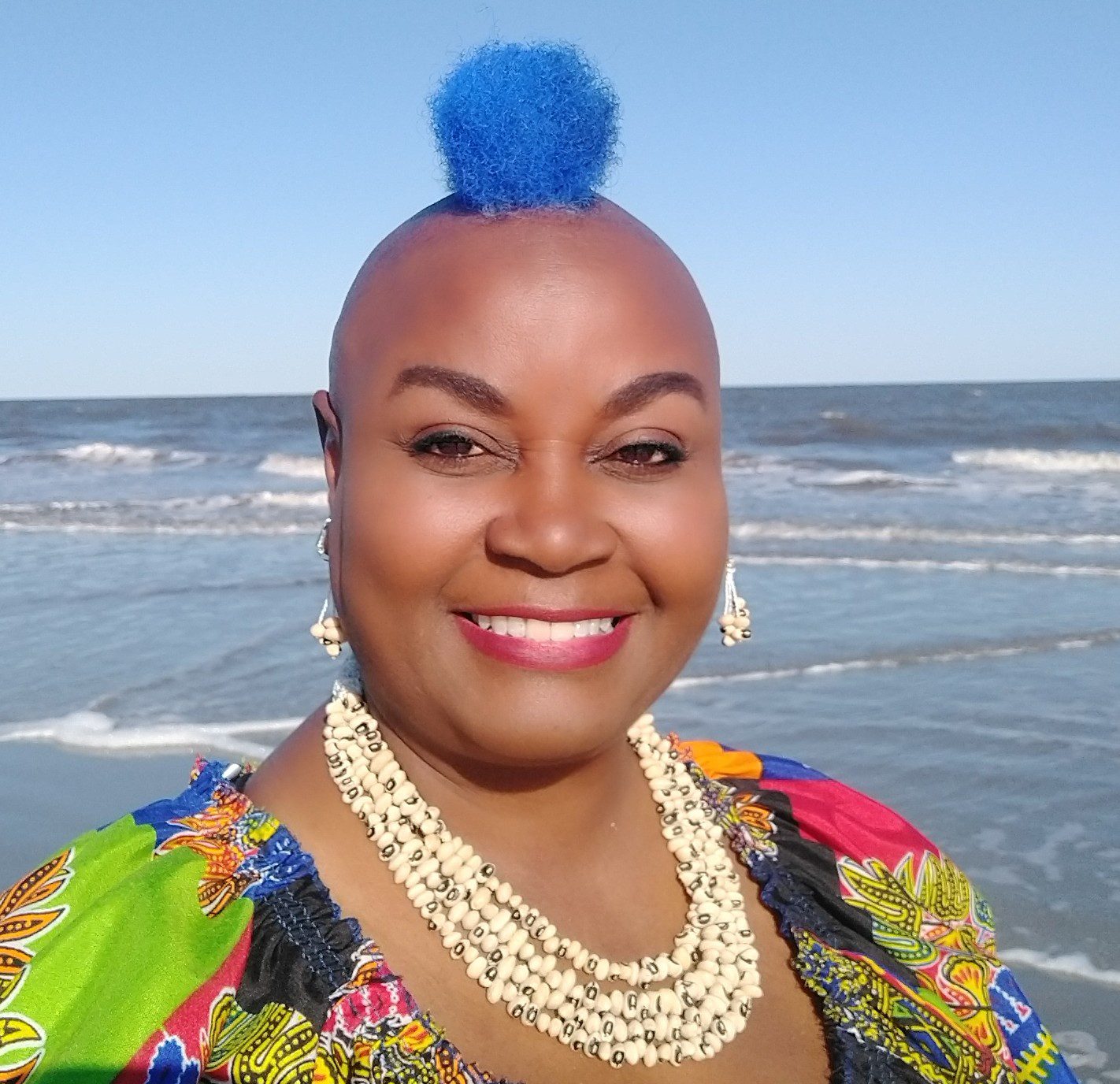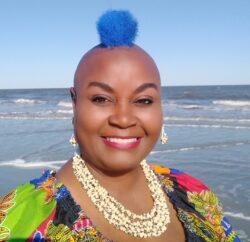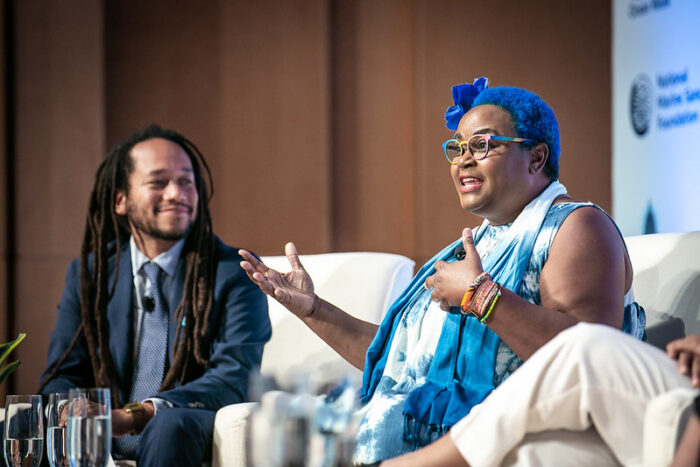
Black History Month: Hermina Glass-Hill, Ocean Abolitionist

Black History Month celebrates the achievements of the African American community and their critical role in United States history. Each year, in recognition of Black History Month, the National Marine Sanctuary Foundation shares stories of Black individuals who have shaped the past and present of our national marine sanctuaries.
Hermina Glass-Hill (she/hers) is an award-winning historian whose work intersects history, environment, and ocean conservation. She is the founder and executive director of the Susie King Taylor Women’s Institute & Ecology Center. In 2019, she received the Georgia Governor’s Award for Arts and Humanities for her work in preservation of African American/Gullah Geechee history and culture. In Georgia, she is the senior field representative for Oceana where she enjoys working on campaigns to protect the ocean’s health and biodiversity from pollution, offshore drilling, climate change, responsible fishing. She is also a member of the Sanctuary Advisory Council for Gray’s Reef National Marine Sanctuary.
In the tradition of Sojourner Truth, Harriet Tubman, and Fannie Lou Hamer, I am a modern-day abolitionist. What this means is that I believe, live, and act according to a set of principles in which freedom for all is a human right, a God-given right, and therefore, I am compelled to work toward dismantling the systems, practices, and institutions that are barriers to pursuing freedom as a goal. So, my work as an ocean abolitionist takes place in the space where society intersects life below the surface of the ocean. And I believe deeply in the Rights of Nature and I recognize that ecosystems and natural communities are not merely property that can be owned. They have an independent and inalienable right to exist and flourish. This is what my three sheroes were fighting for during enslavement and the Civil Rights Movement in America because the U.S. Constitution did not consider Black people to be fully human and worthy of such rights.
I have always been curious and conscientious of issues of injustice and racial disparities. I was born in the 1960s in Atlanta, the birthplace of the modern Civil Rights Movement, in a ‘separate but unequal’ hospital and attended unequal elementary schools. So, I view the world through the lens of ongoing equity, freedom, justice, and the pursuit of happiness and joy for everyone. The latter is what the ocean brings out in me -happiness and joy and awe and wander. The ocean keeps me curious.
I think the cat is out of the bag that one of my favorite marine animals are cetaceans. I find them to be so fascinating, intelligent, majestic, and graceful. Almost every weekend I can be found gorging on videos and books about whales, dolphins, and porpoises.
My curiosity about whales began when I was a young girl in church listening to the wild and outlandish story about Jonah who was swallowed by a big fish, supposedly a whale. At fifty-six I have blue hair. So, imagine me as a precocious child with a vivid imagination. Hmpf! The biblical scenario of a (baleen) whale consuming a human was possible, if you believe. Later, in my high school AP English class there was the classic reading of Herman Melville’s Moby Dick in which a (toothed) whale made a one-piece snack out of the whaler Captain Ahab’s leg. Was that possible? Hmpf! Maybe, if you believe.
When I attended Spelman College in Atlanta and later Georgia State University, I chose to major in the humanities. I earned a Bachelor of Art in History with a minor in African American Studies and a Master of Arts in Heritage Conservation. These disciplines helped to develop and transfer my curiosity about the world into useful tools for analysis and to make reasoned decisions based on inquiry, evaluation, and empathy. These qualitative skills are what I bring to ocean conservation.
As an ocean abolitionist, I go hard for whales especially endangered ones like the North Atlantic right whale, Eubalaena glacialis, because I know what it feels like to be endangered as a Black person, and I know people who know what it feels like. This all goes back to freedom and the Right of Nature. In their natural ecosystems and critical habitats where they forage, socialize, breed, and give birth, North Atlantic right whales have a right to be free of human-caused harms such as entanglement and ship strikes. This anthropocentric view is one of the biggest threats to our planet.
Hermina Glass-Hill is a public historian and founder of the Susie King Taylor Women’s Institute and Ecology Center. She is a senior field representative at Oceana. These ideas represent her personal views.

Hermina Glass-Hill speaks with National Marine Sanctuary Foundation Trustee Dr. Justin Dunnavant on the Margaret Davidson Emerging Leaders Roundtable during Capitol Hill Ocean Week 2023. Photo credit: National Marine Sanctuary Foundation/ImageLink
